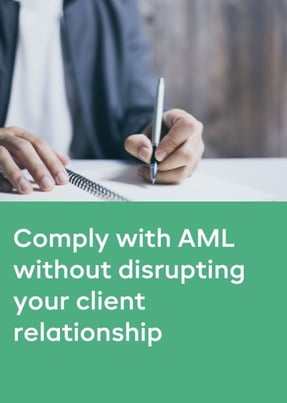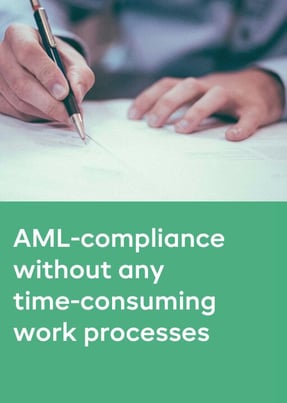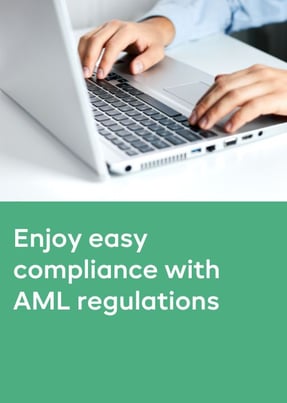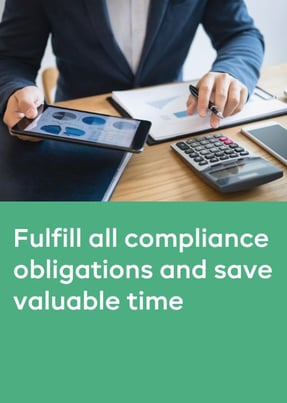- Products
- RegLab for ...
- Knowledge centre
Download the AML glossary >
 Discover the essential AML compliance terminology and gain instant access to a comprehensive guide
Discover the essential AML compliance terminology and gain instant access to a comprehensive guide - The company
Working at RegLab >
There may not be any vacancies that perfectly match your profile, but that does not mean there is no room for someone who can improve RegLab.
- Book a demo
How do you determine whether a matter is subject to AML?
Question no. 1 from the supervisor
The supervisor is about to visit your office. His/Her first question will be this: 'How do you determine whether a matter, or a file, is subject to AML? Next, he/she will ask how you lay down the assessment. In this article, we will help you correctly phrase your answer to this question.
AML applicable to lawyers
In the guidelines, provided by most of the Bar Associations, you will find detailed explanations of when a matter is subject to AML laws or not. Generally speaking, all matters involving the buying and selling of real estate or business entities and managing of client money, securities or assets are subject to AML. If you are a firm specialising in corporate and or real estate law you are often subject to AML.
Corporate, M&A, Banking & Finance, Private Equity etc.: if you work within these disciplines and you are providing legal advice, many of your matters will be subject to AML. It means it is important to take AML policy and execution thereof seriously as a firm. If, on the other hand, you specialise in, for example, employment law or criminal law, you will probably have little to do with AML. Would you like to know exactly to which lawyers and law firms AML applies? Then read the guidelines of your Bar Association.
What is the exception?
There is an exception. It is about the phase in which you are deciding on the client’s legal position. While doing that, you will not be subject to AML. This exception also applies to matters involving corporate and real estate law. Please note: if you work in these disciplines, it is also possible that a matter ‘changes colour’ during your mandate. It means that at some point a matter will become subject to AML because the services you are providing have changed, e.g. you are determining the legal position of your client and after some time you are also assisting with the transfer of shares. This is an important point of interest many offices are unaware of.
What is important during the supervisor's audit?
In order to correctly answer the supervisor’s question as to how you, as a firm and as a lawyer, decide whether a matter is subject to AML, it is important to bear in mind the following:
Prepare an assessment per file and record this assessmentThe supervisor expects you to make an assessment for each file. The supervisor wants to see these assessments in a file. If you fail to record your considerations, there is a risk the supervisor might scrutinise the assessment and discussions will follow before you know it.
Make sure the assessment is part of your AML office policy
It is crucial that you describe in your policy how you approach AML, based on which criteria and the choices you then make. At this stage, you also note where and in what form you report per matter. In a subsequent article, we will discuss AML in more detail as part of the office policy.
Adapt to the 'colour' of the file
As a lawyer, you know better than anyone else what you are doing. However, the supervisor increasingly expects strict monitoring of your current affairs. During an audit, the supervisor wants to see that you constantly monitor if a matter changes colour and, if it does, how you proceed to continue to meet AML requirements.
Did you know simply complying with identification regulations in non AML matters is not enough?
As a lawyer you must also adhere to the professional rules for lawyers (Regulation on the legal profession). It is often believed that complying with these rules suffices for an AML audit. This is correct to an extent, but the AML goes much further. That is why it is important to seriously investigate not only the other regulations for identification of clients, but also the AML and include these in your policy and daily practice. Keep in mind that you must also comply with these other regulations for services that are not subject to the AML. This is important.
Practical tip
Paul Passenier (attorney at BVDV Advocaten & Fiscalisten)
“For us, four aspects are important in order to seriously organise the AML process as an office and to determine whether we are dealing with an AML matter. Those are:
1) periodic AML training sessions for the entire team,
2) a good work instruction - recorded in the office manual,
3) a supporting AML software tool,
4) an internal manager.
“It is particularly advisable to appoint the person responsible, formally or informally. Give someone as an internal 'AML specialist' the mandate and the confidence to take AML decisions, for instance when stricter investigations are required. Having designed these four components, the process of deciding whether a file is subject to the AML makes more sense and becomes more feasible.”
Conclusion
Bearing in mind the supervisor’s visit, it is becoming increasingly important to:
1) record why a matter is (not) subject to AML, and
2) continuously monitor your current matters. Not only can the risk profile of a client change, matters - as described above – can also change colour over time.
Make sure you record all this effectively; generally in the AML office policy and per matter in the file. Record, in writing, any risks that you may identify. You can do this manually or use AML software, such as RegLab. The advantage of software is that you can also quickly answer any follow-up questions, like: “How many legal entities from high-risk countries does your client database consist of?” Moreover, based on automatically generated data, your office can learn a lot, not only about compliance, but also about how your office operates in general.
Themed file: fully prepared for the supervisor’s audit
This article is part of a number of articles and downloads that will help you prepare yourself for the supervisor’s visit. This content is based on a supervisor's FAQs during an audit. Do you want to be 100% AML-proof and ready for the supervisor’s visit? Find all FAQs in our Knowledge Centre.





